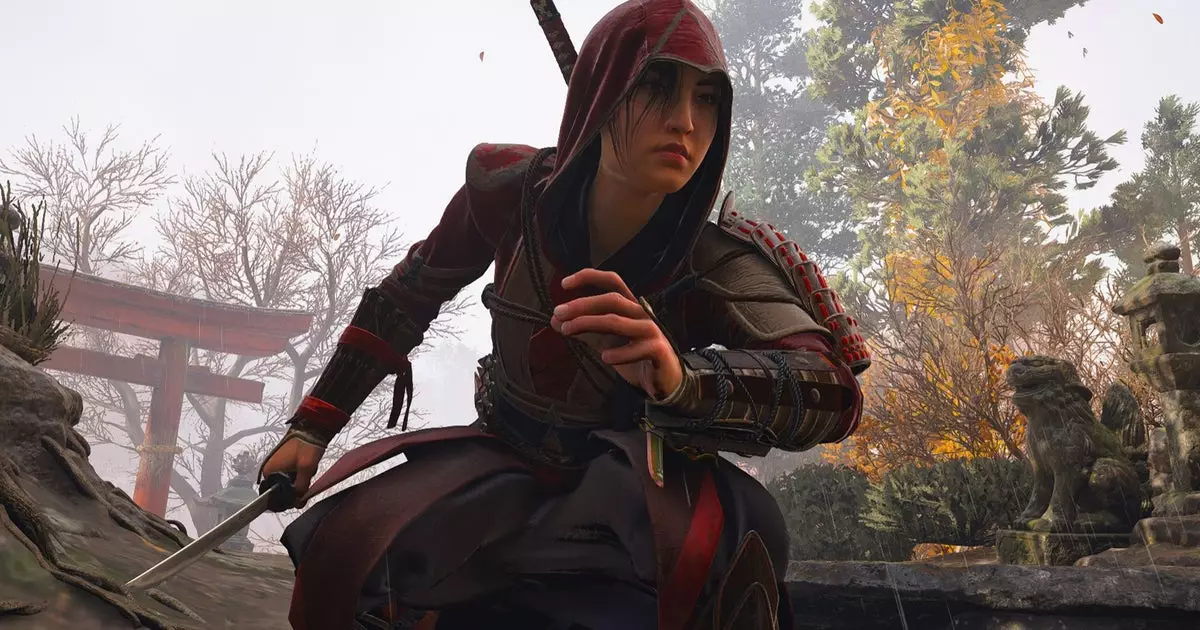Ubisoft, the renowned purveyor of immersive gaming experiences, finds itself at a critical juncture. In recent announcements, the company revealed a delay in the releases of several high-profile projects in the wake of the resoundingly positive reception of “Assassin’s Creed Shadows.” Yves Guillemot, Ubisoft’s CEO, emphasized the “reaffirmation of the Assassin’s Creed brand’s power,” suggesting that this iconic franchise still holds considerable sway in the crowded gaming landscape. It’s a bold statement from a company that, despite facing several challenges, continues to strive for excellence and innovation.
The recent success of “Assassin’s Creed Shadows” has been a breath of fresh air for Ubisoft, providing a glimmer of hope amidst financial turbulence. It achieved the second-highest launch day revenue in the franchise’s history, a feat that Guillemot attributes to meticulous planning and a keen understanding of community engagement. Such insights are crucial as Ubisoft navigates the turbulent waters of a fiercely competitive gaming industry.
Cost-Cutting Measures: A Necessary Evil?
In their quest for stability, Ubisoft has announced plans to reduce operational costs by at least €100 million. This decision may raise eyebrows, particularly given the significant layoffs that have already transpired—around 3,000 employees laid off since the end of September 2022. It begs the question: how far will the company go in the name of “discipline”? While the intent is to fortress the organization’s structure, it feels like a precarious balancing act. The very heart of any creative enterprise lies in its people, and sacrificing talent may ultimately undermine the very innovation Ubisoft seeks to foster.
Furthermore, as a response to recent setbacks—one of which includes the mixed reception of last year’s “Star Wars Outlaws”—Ubisoft has been prompted to delay certain projects significantly. The focus now seems to be on enhancing the quality of game releases rather than merely churning out content at an unsustainable rate. This shift hints at a broader understanding within the company: gamers demand quality and riveting narratives, not just quantity.
A Future with Strategic Partnerships
Ubisoft’s recent partnership with Tencent marks a pivotal pivot in their operational strategy. Establishing a new subsidiary aimed at overseeing the future of their most beloved franchises, including the “Assassin’s Creed,” “Far Cry,” and “Rainbow Six” series, signifies an ambition to harness the strengths of global gaming markets. The collaborative approach not only sheds light on the increasing importance of strategic alliances but also reflects a recognition that the future of gaming lies in diverse markets and development philosophies.
This new entity aims to provide the necessary resources and focus to revitalize some of the company’s most iconic brands. By investing in this collaborative model, Ubisoft is aspiring to create a more sustainable and innovative development pipeline—one that can deliver both exciting new titles and enriching updates to existing games, achieving a harmonious balance between engaging single-player experiences and robust live-service models.
Of Wolves and Disciplines: The Dual Faces of Development
Ubisoft is acutely aware of the ‘existential duality’ inherent in modern game development, depicted poetically as two wolves in eternal conflict. One wolf represents expansive, open-world narratives that enthrall players with deep storytelling, while the other embodies the insistent demand for live-service games that continuously engage and retain user interest through regular content updates. Understanding this internal dichotomy is crucial for the studio’s future direction.
There’s an intriguing acknowledgment that current industry dynamics necessitate a delicate balancing act—improving narrative-driven experiences while simultaneously enhancing multiplayer environments. The commitment to improve storytelling in combination with a well-executed live-service framework speaks volumes about Ubisoft’s understanding of player expectations. However, the question remains: will this lead to more cohesive gaming experiences, or may it further perpetuate fragmentation in gaming that players are increasingly wary of?
Ubisoft’s upcoming landscape primarily revolves around solidifying its core offerings while ensuring that expansion isn’t achieved at the cost of quality—an approach that clearly signals a shift from past overambitions. The anticipation surrounding what’s next for Ubisoft is palpable, and there’s a cautious optimism that the company is steering itself toward more sustainable and fulfilling gaming experiences for its audience.


Leave a Reply